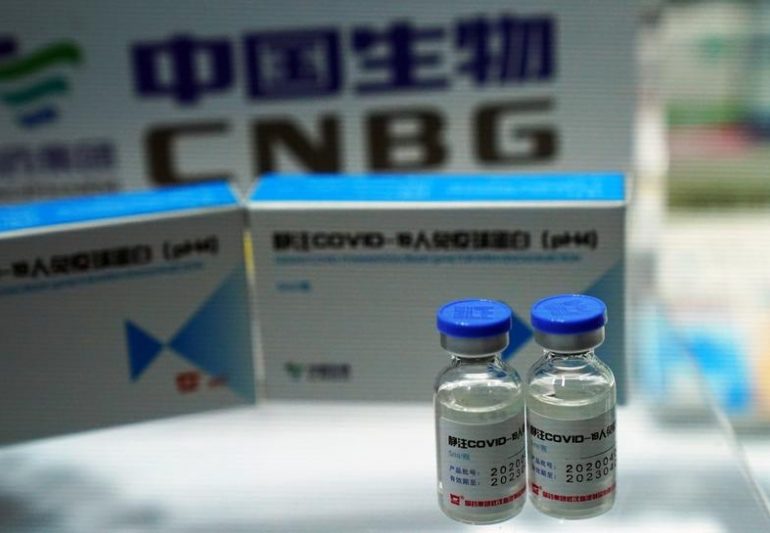State-backed vaccine maker China National Biotec Group (CNBG) is hopeful of two of its novel coronavirus vaccine candidates receiving conditional regulatory approval for general public use within the year, its vice president said on Tuesday.
China has inoculated hundreds of thousands of people under an emergency programme authorised in July for essential workers and other limited groups of people considered at high risk of infection, to stave off a resurgence of the coronavirus, even as clinical trials of vaccines are still underway to prove their efficacy and safety.
Inoculating the general public with a workable vaccine is likely to be an important tool in curbing a virus that has led to over 960,000 deaths worldwide. However, expanding vaccine use prior to obtaining long-term data risks raising expert concern.
“CNBG is discussing with relevant state authorities about the requirements for conditional approvals of the two coronavirus vaccines,” Zhang Yuntao told Reuters.
The South China Morning Post first reported CNBG’s talks with regulators.
“If all goes well, the two vaccines could hopefully be approved conditionally within the year for use in the general public,” Zhang said in a statement to Reuters.
In China, authorities can grant conditional approval for vaccines undergoing clinical trials if deemed urgent for major public health emergencies, with assessed benefits outweighing risks.
CNBG’s two candidates are included in China’s emergency use programme. One of them obtained emergency approval this month in the United Emirates where the firm is conducting a Phase 3 trial.
Zhang did not specify the regulators CNBG is in talks with. China’s National Medical Products Administration did not respond to a request for comment.
CNBG is a subsidiary of state-owned China National Pharmaceutical Group Co Ltd (Sinopharm).
"ვარ BMG/Forbes-ის მიმომხილველი. მაინტერესებს ეკონომიკა და ტექნოლოგიები".














